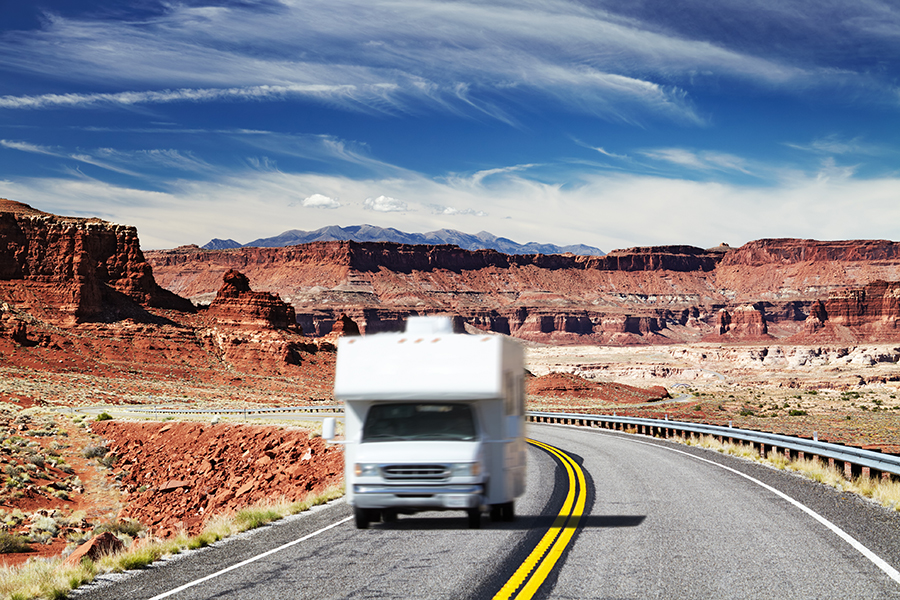When temperatures surpass 90 degrees and beyond, automobile engines can become stressed to maintain sufficient cooling. For RVs, this can be far greater an issue, given the overall weight being moved. In addition, many RV travelers traverse scenic highways that often involve hilly or mountainous terrain. All this can require an RV operator to take steps to maintain the highest rate of engine cooling. So just what can be done to help manage engine heat stress in excessively hot weather?
Before Departing
Check Anti-Freeze — Assuming the coolant is the correct type for the engine (Diesel engines need a special glycol), top it up as required.
Check the Radiator Fins for Dirt — Regularly clean the radiator core using Simple Green or similar. Spay it with cleaning agent, allow to soak briefly and then rinse with a soft spray.
Verify the Correct Thermostat — Be sure the engine is fitted with the correct thermostat for the application.
Check Fan Belts, Hoses and Clamps — Check the drive belt’s condition and tension. Inspect all hoses and clamps.
RV Engine Heat on the Road
Reduce Speed — Driving at slower speeds reduces the needed horse power, resulting in cooler temperatures.
Climb Steep Grades in Lower Gear — Manually select a lower gear to maintain a constant higher engine rpm at between half to three-quarter throttle. Higher engine rpm increase the circulation of the coolant. Manually operating the transmission avoids the need for full throttle to maintain a lower gear.
Reduce Dash Air Conditioner Demand — Reduce or turn off engine-driven dash A/C. Consider running the generator and roof air if so equipped. Dash air requires additional horsepower to operate and also generates added heat at the radiator.
Stop if Engine or Transmission Temperatures Get Too High — Stopping and letting everything cool during a long climb can help. Do not shut off the engine until all gauges return close to normal value. During the running cool down, increase the rpm several hundred over idle speed. This helps distribute the heat evenly while cooling.
Drive to Reduce Fuel Consumption — Driving in a manner that would reduce fuel consumption tends to lower engine heat as less fuel means lower BTU’s produced. This means steady breaking and acceleration, observing the speed limit and maintaining proper tire inflation. Of course, avoiding extra weight in the RV also helps.
Peter Mercer — Dealing with the Dog Days of Summer
